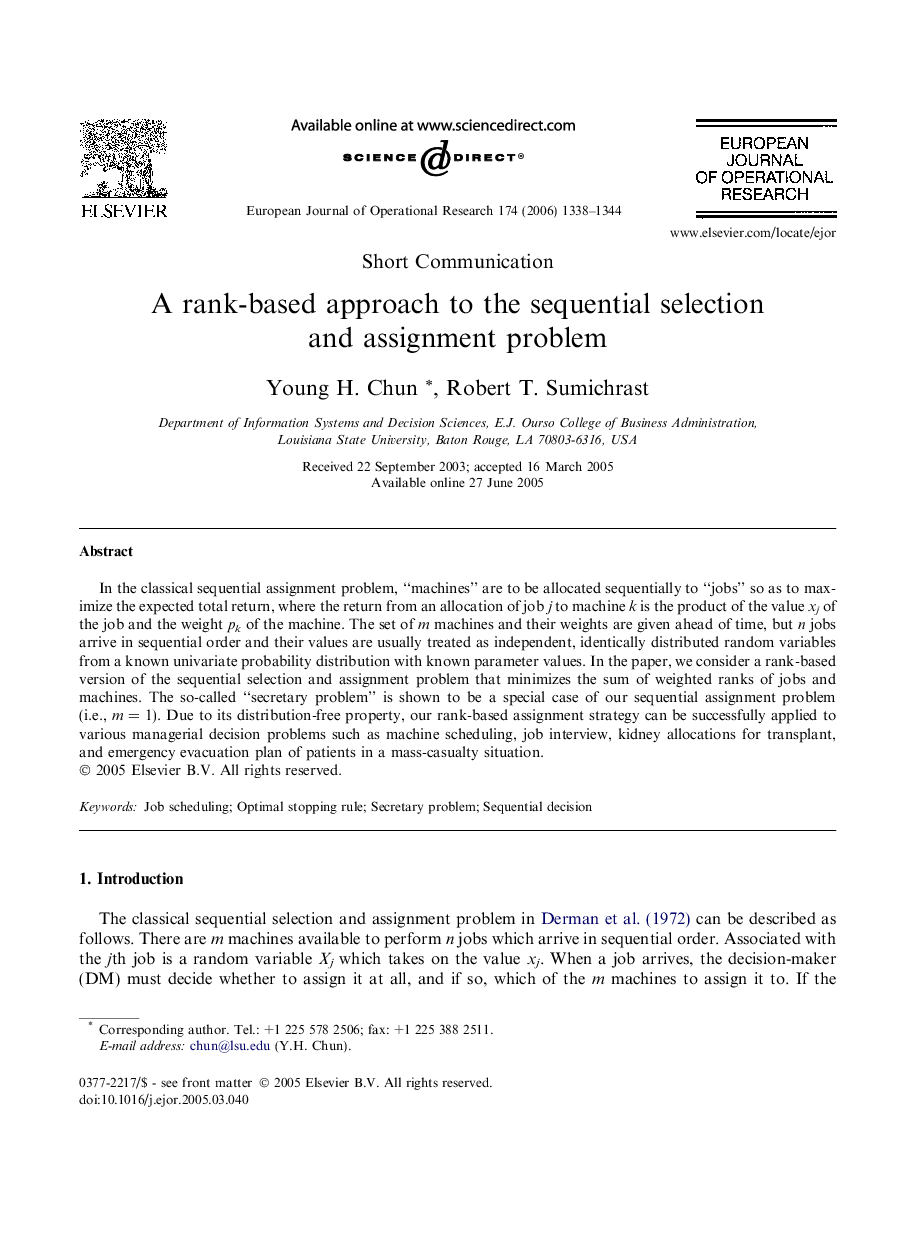| Article ID | Journal | Published Year | Pages | File Type |
|---|---|---|---|---|
| 482494 | European Journal of Operational Research | 2006 | 7 Pages |
In the classical sequential assignment problem, “machines” are to be allocated sequentially to “jobs” so as to maximize the expected total return, where the return from an allocation of job j to machine k is the product of the value xj of the job and the weight pk of the machine. The set of m machines and their weights are given ahead of time, but n jobs arrive in sequential order and their values are usually treated as independent, identically distributed random variables from a known univariate probability distribution with known parameter values. In the paper, we consider a rank-based version of the sequential selection and assignment problem that minimizes the sum of weighted ranks of jobs and machines. The so-called “secretary problem” is shown to be a special case of our sequential assignment problem (i.e., m = 1). Due to its distribution-free property, our rank-based assignment strategy can be successfully applied to various managerial decision problems such as machine scheduling, job interview, kidney allocations for transplant, and emergency evacuation plan of patients in a mass-casualty situation.
